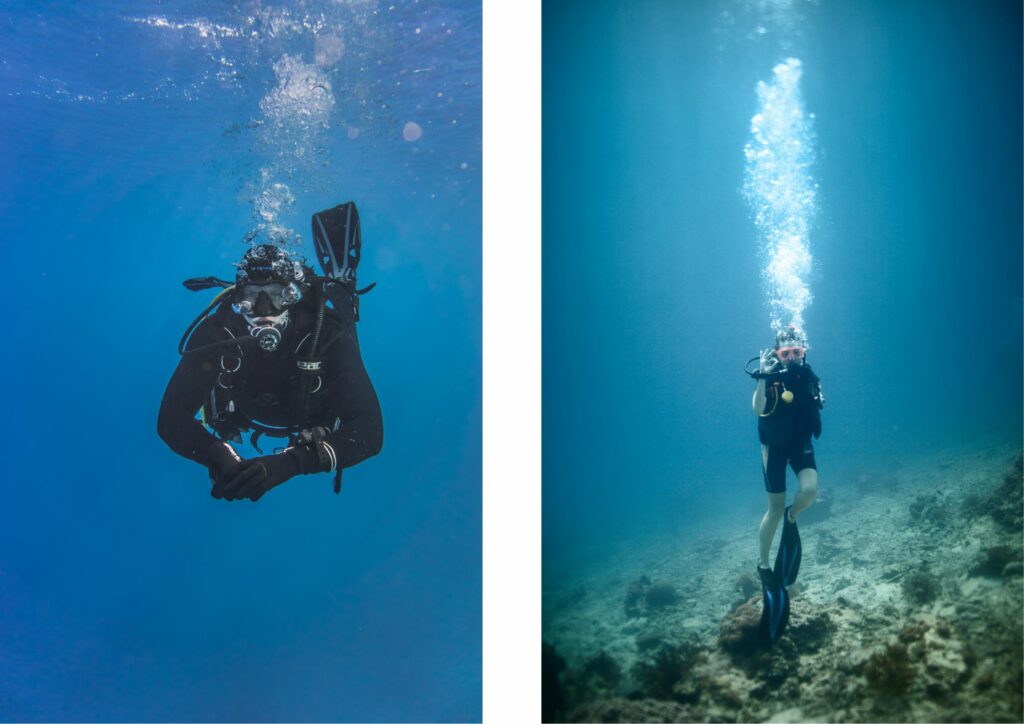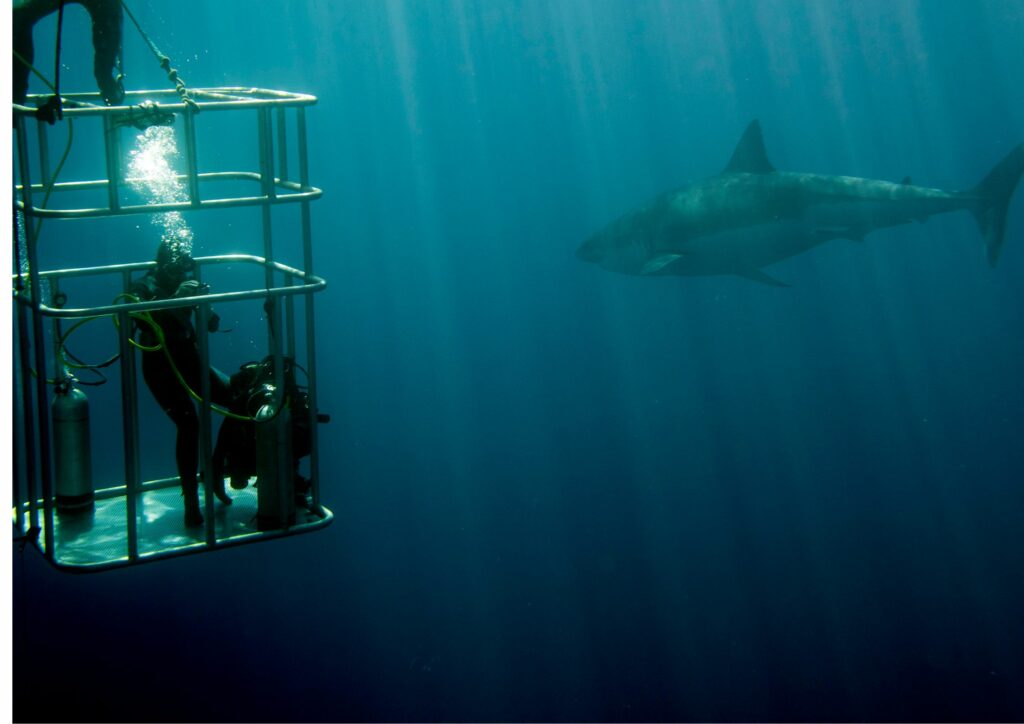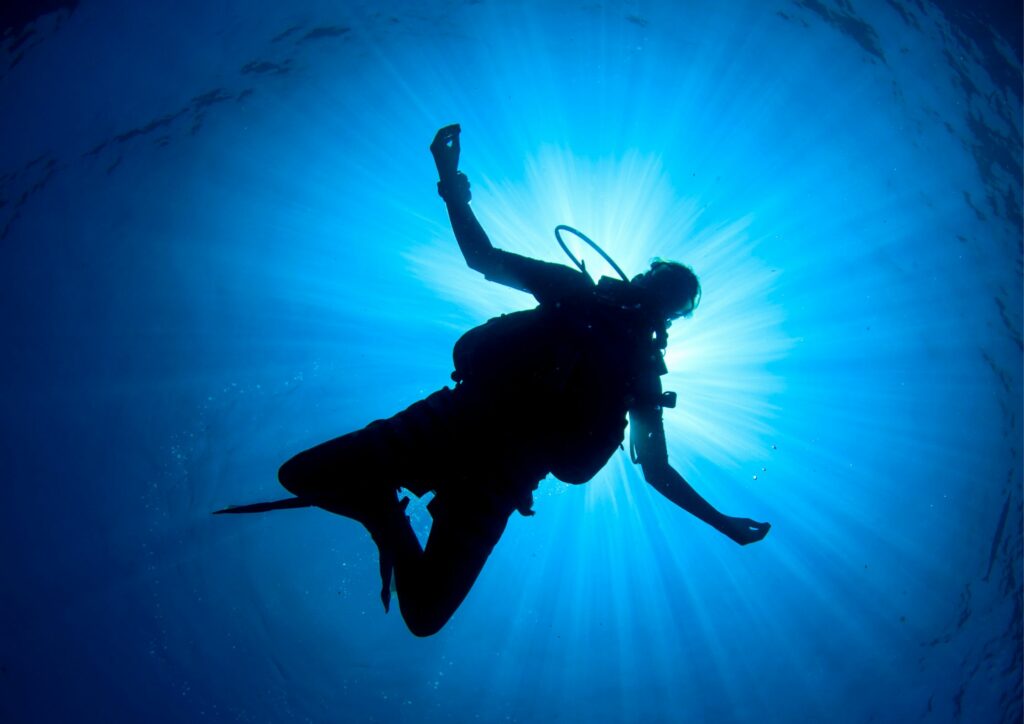Prepare to explore the profound scuba diving myths busted and embrace the thrilling scuba diving truths. Are you intrigued by the spell-binding allure of scuba diving? Or, are you a seasoned diver deterred by numerous myths shadowing the thrill of exploring marine life? You’re in the right place as we bust some scuba diving misconceptions and dive deep into the abyss of truth.
Myth 1: Scuba Diving is an Extreme Sport & Absolutely Dangerous
It is often presumed that scuba diving is something that only adrenaline junkies undertake due to the risky nature associated with it. However, the scuba diving myths can be counter-productive to mark it as a high-risk activity. Like all adventurous pursuits, hazards are present, but with meticulous preparation and consistent adherence to diving protocol, it rarely poses a substantial threat.
The common perception of it being an extraordinarily dangerous sport is, therefore, more of a misunderstanding than reality. Equipment checks form an inherent part of the safety measures taken before the dive. Training is equally important as it equips a diver with necessary survival skills and techniques, and thorough knowledge which makes scuba diving as secure as engaging in any other water-based recreation.
Myth 2: Deep Sea Creatures are Always Threatening
A common myth surrounding marine life portrays underwater creatures as menacing and dangerous. However, the majority of marine creatures are harmless to humans. In fact, we, as humans, are probably more of a threat to them than they are to us. Most underwater species tend to be quite wary of human presence and usually maintain a safe distance. They might seem scary due to the sheer unfamiliarity and the typical images that media plants into our minds. Nevertheless, respecting marine life and their homes is a fundamental practice followed by every seasoned diver which helps to ensure a harmonious interaction, busting the myth of sea creatures being harmful as scuba diving myths.
Myth 3: Divers Need to Swim proficiently
You might think that one needs to be a world-class swimmer to enjoy the delights of what lies underneath. But that’s just a myth from all scuba diving myths. Basic swimming skills and being comfortable in water are adequate to explore the deep blue sea safely. It’s more about the art of controlling buoyancy and the capacity to manipulate fins than orthodox swimming strokes. Understanding your equipment and maintaining a controlled composure aids effective underwater navigation. Thus, technical finning techniques and buoyancy control far outweigh the necessity for advanced swimming capabilities, making scuba diving achievable to just about anyone.
Myth 4: Scuba Diving is a Strong Men’s Sport
Breaking glass ceilings is required here. The outdated stereotype that scuba diving is only fit for the physically robust and is dominated by men is begging for obliteration. What enables you to drift effortlessly underwater is buoyancy control, not brute physical strength. Thus, anyone, regardless of gender, who has the desire to explore the depths of the sea, can take up scuba diving. This sport is about finesse and technique, more than your physicality, debunking the gender-based diving myth.
Myth 5: It’s too Cold to Dive in Winter
Many people are of the belief that scuba diving is a summer activity, but this is merely one of the myth from many scuba diving myths. Technological advancement in diving suits, such as thermal and dry suits, has opened up the oceans to divers all year round. These suits help in maintaining body temperature even in the coldest of waters, allowing you to explore the marine life even in the chilliest season. The advent of such suits ensures that, weather-wise, anytime is a good time for a dive!
Myth 6: Dive Deeper for the Best Experience

The thrill of scuba diving is often mistaken to depend upon the depth to which one dives. However, this notion is a mere myth. Scuba diving is about enjoying the serenity, and breathtaking beauty under the waves. Many of the most spectacular coral reefs, teeming with life, are found quite near to the water’s surface. While deeper dives do have their own unique charm, shallower dives, carried out safely and responsibly, can be just as rewarding. The focus should always be on safety and enjoyment, rather than simply going deeper.
Myth 7: Scuba Diving is too Expensive
There’s an often-cited scuba diving myths about scuba diving being too expensive. Though it may seem steep initially considering the cost of the gear and the pricing of the certification, subsequent dives are quite reasonable. Compared to the cost of other recreational activities, scuba diving is no costlier. It’s also important to remember that the thrill and experience of exploring an entirely different universe under the sea is unmatchable, making it worth every penny.
Myth 8: Professionals Do Not Need to Revise
Regardless of how many dives one has under their belt, learning is a continuous process in scuba diving. It is scuba diving myths that once you’re a professional, there’s no need for constant revision. Recurring review of scuba diving principles, safety measures, and emergency procedures stand critical to ensure safety at all times. Vigilant divers uphold the belief of perpetual learning and adapting to evolving circumstances, no matter their experience level.
Myth 9: You Get Eaten by Sharks While Diving

Popular culture and cinema might paint a terrifying picture of sharks as ferocious man-eaters, but data and facts stand witness that shark attacks on divers are extremely rare. Contrary to the belief, sharks, as a species, are ordinarily not interested in human interaction and don’t pose a significant threat. Unfounded fear and sensationalism have unfortunately cast these beautiful creatures as monsters of the deep when they are just an integral part of the vibrant underwater ecosystem.
Myth 10: Diving is Harmful to the Environment
One fairly prevalent misconception about scuba diving is that it’s harmful to the marine environment as one of the scuba diving myths. However, when carried out responsibly, it is quite the contrary. Many divers, individually and collectively, participate in conservation efforts to protect and preserve the marine ecosystems that they explore. Rather than being harmful, divers often turn out to be the champions of the sea, helping to raise awareness about the extraordinary underwater life and the threats they face.
Scuba Diving Myths: Embracing the Scuba Truth in Bali
Having debunked numerous myths, we can absorb a breath of fresh air, or in this case, a lungful of oxygen mix. Diving is not only about equipment, techniques, and marine creatures; it is a serene congregation of human curiosity, aquatic marvel, and natural spirituality. So, whether you’re a newbie intrigued by these just-busted myths or a seasoned diver nodding along the debunking trail, remember to dive safe, dive responsible, and dive often. Embrace these scuba diving truths and let the grand lure of the ocean put your misconceptions to rest.
Embracing the Scuba Truth in Bali from Scuba Diving Myths offers an unparalleled underwater adventure, showcasing the vibrant marine life and stunning coral reefs that make Bali diving a must-experience activity for enthusiasts and novices alike. Bali’s crystal-clear waters provide the perfect backdrop for exploring diverse dive sites, from the USAT Liberty shipwreck in Tulamben to the mesmerizing underwater temples in Pemuteran. Whether you’re captivated by the graceful manta rays of Nusa Penida or the colorful macro life in Amed, Bali diving promises an unforgettable journey into the heart of the ocean’s beauty and mystery.

I completely agree with the author. Scuba diving is not just about the thrill and excitement, but also about respecting and preserving the marine environment. I’ve had some great experiences diving in Bali and it’s amazing to see how the dive operators are working together to protect the reefs.
Hi Fatima, thank you for sharing your positive experiences diving in Bali! We’re glad to hear that the dive operators are working together to protect the reefs. At Gill Divers, we also prioritize marine conservation and ensure that our divers adopt attitudes of better respect and appreciation of the ocean and its life. If you have any questions or would like to learn more about our scuba diving courses in Bali, please don’t hesitate to reach out. We’re always here to help.
I’m a beginner diver and this article has really helped me understand some of the common myths about scuba diving. I’m looking forward to my next dive in Bali and exploring the underwater world.
Ahmed, thank you for reaching out! I’m thrilled to hear that our article has been helpful in debunking some common scuba diving myths. Bali is an amazing destination for diving, and I’m sure you’ll have a fantastic time exploring the underwater world there. Remember to always prioritize safety and respect the marine environment during your dives. If you have any more questions or concerns, feel free to reach out to us anytime at +65 6734 9373 or [email protected].
I’ve been diving for years and it’s great to see an article that debunks some of the common myths. I completely agree with the author, scuba diving is not just about the equipment or techniques, but also about respecting and preserving the marine environment.
Hi Rohini, thanks for sharing your thoughts on our article! We’re glad you agree that scuba diving is not just about the equipment or techniques, but also about respecting and preserving the marine environment. At Gill Divers, we believe that responsible diving practices are crucial to ensuring the long-term health of our oceans. Our dive operations in Bali are designed with sustainability in mind, from reducing waste and minimizing our environmental impact to promoting conservation efforts and supporting local communities. We’re proud to be a part of the scuba diving community that’s committed to making a positive difference in the marine world. If you have any questions or would like to learn more about our sustainable dive practices, feel free to reach out to us at Tel: +65 6734 9373 or Email: [email protected]